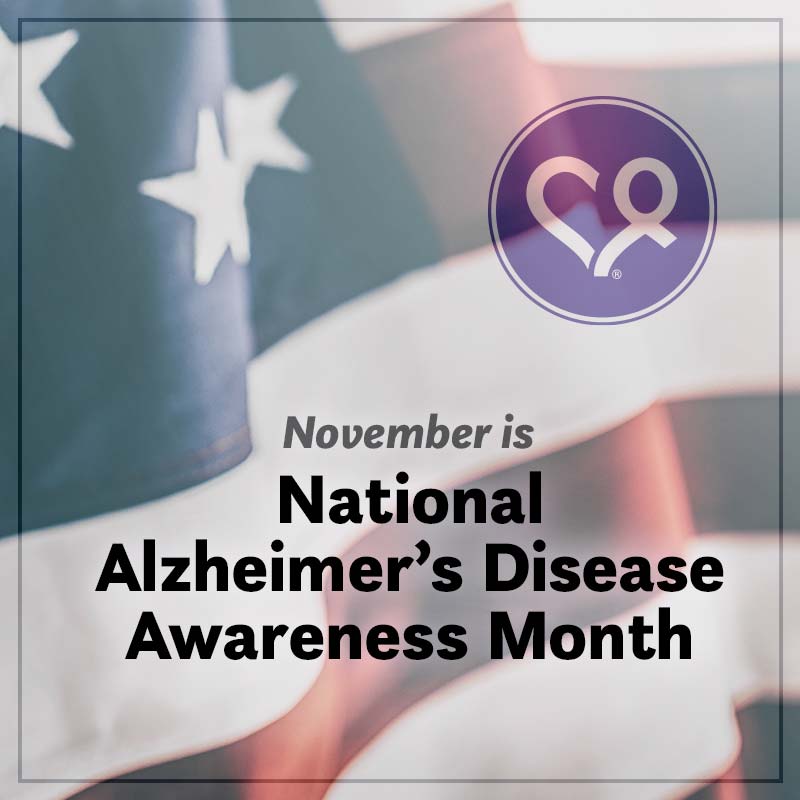National Alzheimer’s Disease Awareness Month 2018

November Is National Alzheimer’s Awareness Month
President Ronald Reagan designated November as National Alzheimer’s Awareness Monthin 1983. At the time, fewer than 2 million Americans had Alzheimer’s; today, the number of people with the disease has soared to more than 5.7 million, with over 650,000 living in California. Get involved this month and help raise awareness for Alzheimer’s.
Alzheimer’s affects the whole family
Dementia impacts the whole family, not just the person with the disease. The chronic stress of watching a loved one slowly decline affects everyone. Family caregivers experience high rates of physical illness, social isolation, emotional distress and financial hardship compared to non-caregivers. Having a care plan can help reduce stress by knowing what to expect and having resources at hand.
Alzheimer’s and dementia basics
- Alzheimer’s is the most common form of dementia, a general term for memory loss and other cognitive abilities serious enough to interfere with daily life. Alzheimer’s disease accounts for nearly 80% of dementia cases.
- Alzheimer’s is not a normal part of aging. The greatest known risk factor is increasing age, and most people with Alzheimer’s are 65 and older. But Alzheimer’s is not just a disease of old age. Approximately 200,000 Americans under the age of 65 have younger-onset Alzheimer’s.
- Alzheimer’s worsens over time. Alzheimer’s is a devastating neurodegenerative disease that weakens the memory and other cognitive and emotional functions. In its early stages, memory loss is mild, but with late-stage Alzheimer’s, individuals lose the ability to carry on a conversation and respond to their environment.
- Alzheimer’s cannot be prevented, slowed or cured. Alzheimer’s is the sixth leading cause of death in the United States.
What you can do
- Become a Dementia Friend
- Donate or Create a Fundraiser
- Volunteer
If you need help, call us for an appointment with a care counselor at 844.HELP.ALZ (844.435.7259)
When is memory loss more than forgetfulness?
Although everyone’s brain changes as they age, Alzheimer’s disease is not a normal part of aging. Occasionally forgetting words or names does not mean a person has Alzheimer’s. Signs that memory loss is more than normal include:
If you or someone you care about is concerned about changes that might be related to memory loss call your doctor.
